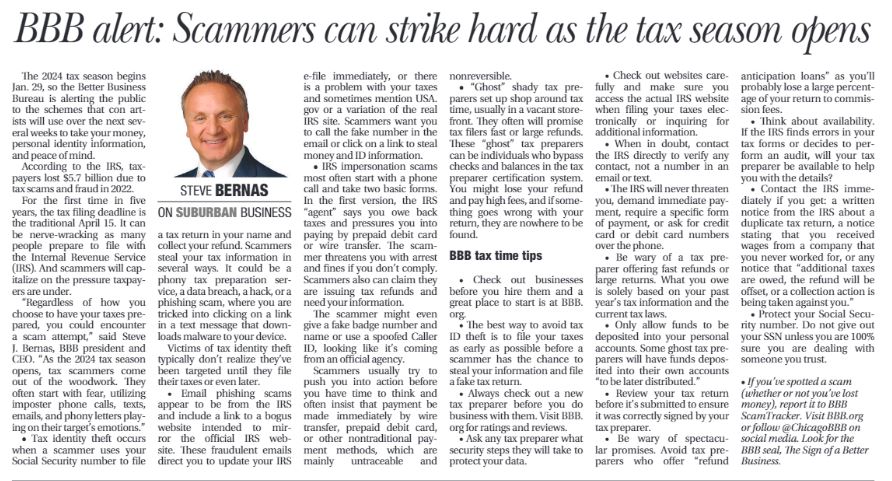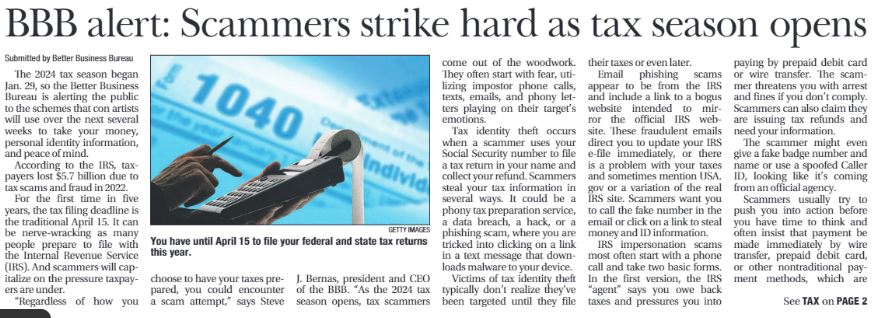Phishing Emails and Fake Websites:
One of the most prevalent tax scams involves phishing emails and fake websites designed to trick taxpayers into disclosing sensitive information such as Social Security numbers, bank account details, and passwords. These emails often appear to come from legitimate government agencies like the IRS or reputable tax preparation companies. They may contain urgent messages claiming issues with your tax return or refunds, prompting you to click on malicious links or download attachments.
To protect yourself:
- Be cautious of unsolicited emails asking for personal or financial information.
- Verify the legitimacy of emails by checking the sender's email address and looking for grammatical errors or inconsistencies.
- Never click on links or download attachments from suspicious emails.
- Instead of clicking on links provided in emails, visit official websites directly by typing the URL into your browser.
Phone Scams:
Another common tactic used by scammers is impersonating IRS agents over the phone. They may use scare tactics, such as threatening legal action or arrest, to intimidate victims into making immediate payments or providing personal information over the phone. These calls can be convincing, often displaying spoofed caller IDs to appear as if they're coming from the IRS or other government agencies.
To protect yourself:
- Remember that the IRS typically initiates contact through mail, not phone calls or emails.
- Be wary of aggressive or threatening language used by callers claiming to be IRS agents.
- Never provide personal or financial information over the phone unless you initiated the call and are certain of the recipient's identity.
- Hang up immediately if you suspect a call is fraudulent and report it to the IRS.
Identity Theft:
Tax-related identity theft occurs when someone uses your stolen Social Security number or other personal information to file a fraudulent tax return and claim a refund. Victims often discover this scam when they attempt to file their legitimate tax return and find that it's been rejected because a return has already been filed using their information.
To protect yourself:
- Safeguard your Social Security number and other sensitive information.
- File your tax return early to reduce the risk of someone else filing a fraudulent return in your name.
- Monitor your credit report and bank accounts regularly for any suspicious activity.
- Consider placing a fraud alert or security freeze on your credit report for added protection.
Conclusion:
Tax scams come in various forms and can have serious consequences for victims, including financial loss, identity theft, and legal troubles. By staying informed and vigilant, you can protect yourself from falling prey to these fraudulent schemes. Remember to verify the legitimacy of any communication claiming to be from the IRS or other government agencies, and never provide personal or financial information unless you're certain of the recipient's identity. Stay safe and secure this tax season!




 RSS Feed
RSS Feed


